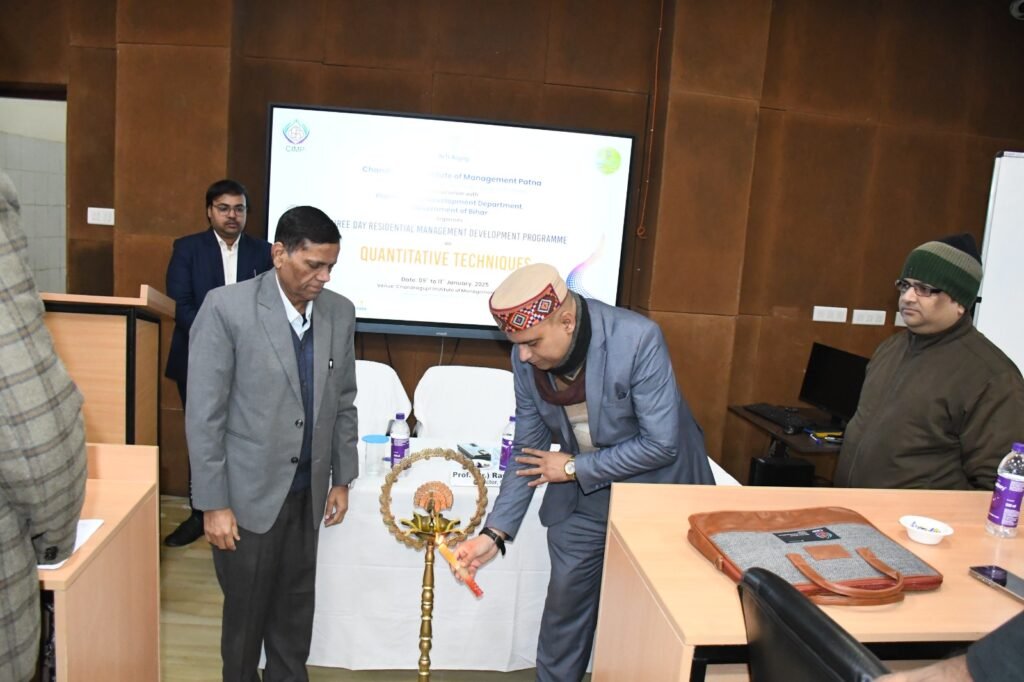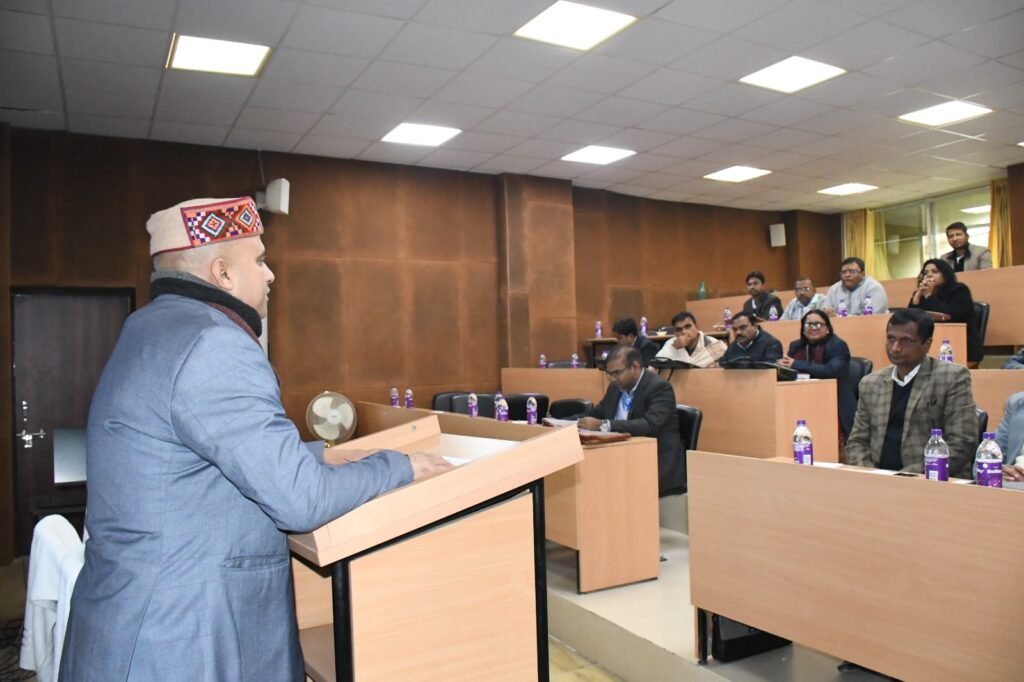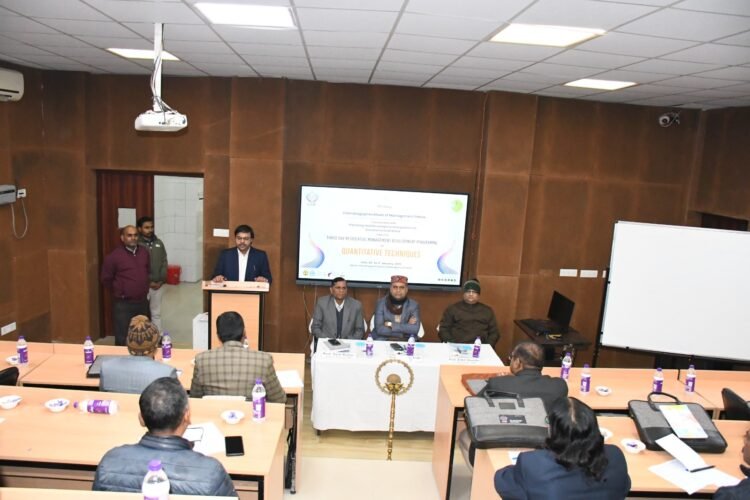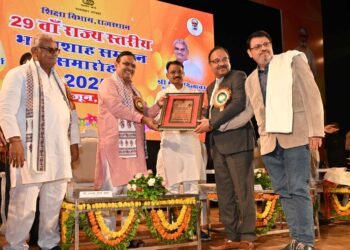PATNA (India CSR): The Chandragupt Institute of Management Patna (CIMP), in collaboration with the Planning and Development Department, Government of Bihar, and under the State Support Mission of NITI Aayog, has inaugurated a three-day Management Development Programme (MDP) on Quantitative Techniques. Running from January 9 to January 11, 2025, this residential programme aims to equip government officials with advanced analytical tools to enhance data-driven decision-making, thereby strengthening governance and planning across Bihar.
Building Analytical Excellence in Governance
The programme features 25 participants from the Planning and Development Department, including Joint Directors, Deputy Directors, District Statistical Officers, Assistant Directors, Block Statistical Officers, Regional Planning Officers, and District Planning Officers. By focusing on improving quantitative analysis capabilities, the programme seeks to foster evidence-based policymaking and more efficient governance structures.
Table: Key Highlights of the Management Development Programme
| Feature | Details |
|---|---|
| Programme Duration | January 9 to January 11, 2025 |
| Participants | 25 government officials |
| Organizers | CIMP, Planning and Development Department, NITI Aayog |
| Key Learning Areas | Data clustering, optimization, regression, data visualization |
| Certification | Joint certification upon completion |

A Commitment to Learning and Development
The inaugural session began with a ceremonial lighting of the lamp, symbolizing the pursuit of knowledge and continuous learning. The event was graced by the presence of notable dignitaries, including:
- Prof. (Dr.) Rana Singh, Director, CIMP
- Prof. Sunil Kumar, Professor of Practice, CIMP
- Prof. Ankit Sharma, Associate Professor, CIMP
In his opening remarks, Prof. Singh highlighted the growing importance of data analytics in governance, emphasizing that the programme would provide participants with essential skills to leverage data for informed decision-making. He stated:
“In an era of data-driven policies, mastering quantitative techniques is no longer optional but essential for impactful governance.”
Key Topics Covered in the Programme
Let’s dive in and explore the key learning modules offered in the programme:
- Data Classification and Clustering: Methods for organizing data into meaningful groups.
- Optimization Techniques: Approaches to streamline decision-making and maximize outcomes.
- Data Visualization: Creating visual representations of complex data using charts and graphs.
- Regression Analysis: Understanding relationships between variables to predict outcomes.
- Decision Trees: Structured frameworks for making informed decisions based on data insights.
The curriculum encourages active participation through case studies, group discussions, and hands-on exercises to ensure that participants gain practical insights into applying quantitative methods in real-world scenarios.

Driving Collaborative Learning
Prof. Sunil Kumar noted the importance of interactive learning in the programme:
“This programme fosters a collaborative environment where participants can exchange ideas, learn from each other’s experiences, and apply innovative solutions to governance challenges.”
The MDP concludes on January 11, 2025, with a feedback session and the distribution of certificates to participants, marking the successful completion of this initiative.
Strengthening Bihar’s Governance Framework
This Management Development Programme represents a significant step toward building analytical excellence within government institutions. By enhancing the quantitative capabilities of officials, the initiative supports Bihar’s vision of effective, evidence-based policymaking and public service delivery.
In a world increasingly driven by data, programs like this enable officials to make impactful decisions that can improve lives and foster sustainable development.
(India CSR)






















